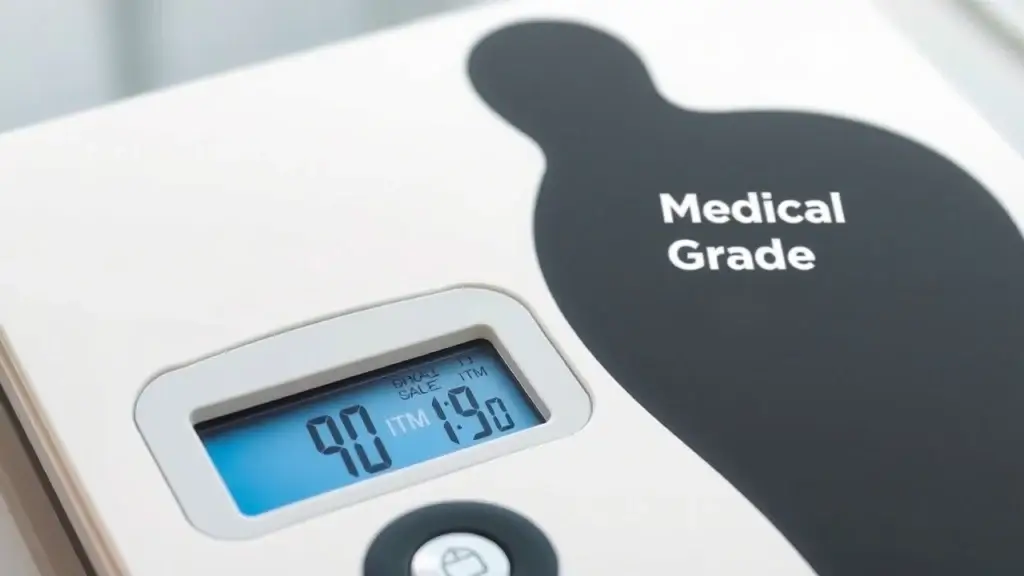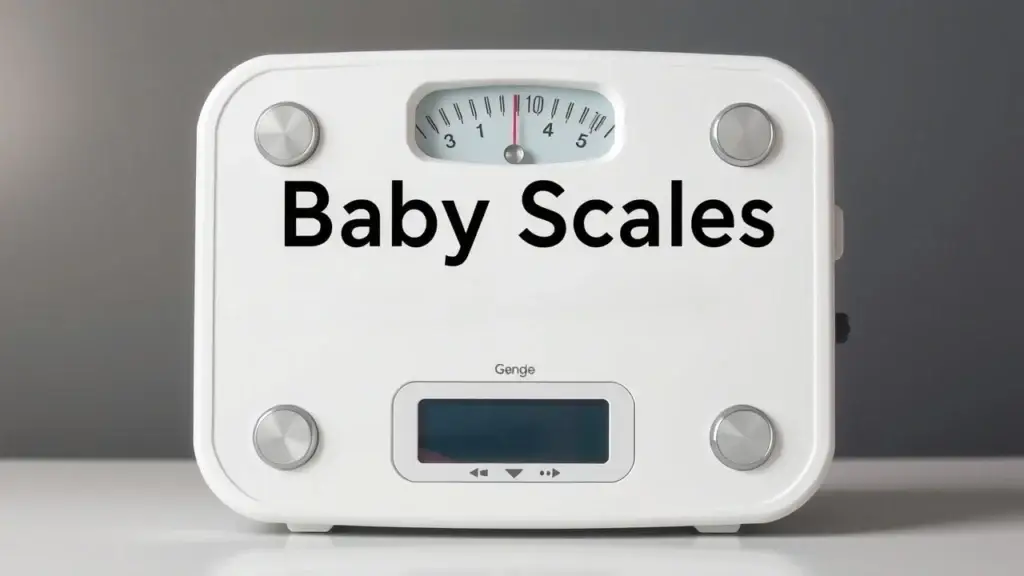This guide covers various types of weighing scales for humans, from basic bathroom scales to precise digital and baby scales. Find the perfect scale for your needs by understanding its differences.
What Are Human Weighing Scales?

Human weighing scales are tools that measure body weight. They can be mechanical or digital. These weight measurement devices are common in homes, gyms, and hospitals. Digital bathroom scales have become popular because they are easy to use and show precise readings. Unlike mechanical scales that work with springs, digital ones display numbers clearly.
Many health scales do more than just show weight. Some can analyze body fat percentage and calculate BMI. This makes them useful for people who want to keep track of their fitness or manage health issues.
Why Understanding Scale Types Matters?
Knowing the different types of weighing scales is important when choosing one that fits your needs. Accuracy and precision play a big role in getting reliable weight measurements. A scale that isn’t accurate can lead to poor health choices. While affordable weighing scales might look appealing, they shouldn’t sacrifice reliability.
Different scale features address specific needs. You might want a basic bathroom scale or a high-tech model with smart features like Bluetooth for tracking your progress over time.
Overview of Popular Types
Here are some popular types of human weighing scales you might find:
- Mechanical Scales: These traditional models use springs and levers for measuring weight without electronics.
- Digital Bathroom Scales: These offer quick readings shown on an easy-to-read LCD screen.
- Baby Scales: Designed for infants, these ensure accurate weight readings while keeping little ones safe.
- Smart Scales: With advanced features like BMI measurement and body composition analysis, smart scales connect to apps so users can monitor various health metrics over time.
Each type of scale has its own purpose, catering to everyday users at home or professionals needing precise data for patient care.
Mechanical Scales Explained
How Do Mechanical Scales Work?
Mechanical scales use simple physics to measure weight. They typically rely on springs or a balance beam. When someone steps on the scale, their weight compresses a spring or moves a lever, showing the weight on an analog dial.
The principle behind these scales relates to Hooke’s Law. This law says that the force from a spring is linked to how far it stretches. So, when more weight goes on the scale, the spring stretches more. This gives us accurate readings based on gravitational force acting on mass.
Types of Mechanical Scales
There are two main types of mechanical scales you’ll find:
- Spring-operated Personal Scales: These are common at home and have an analog dial. They are easy to use and provide basic weight readings.
- Balance Beam Models: You usually see these in gyms or clinics. They offer better precision by balancing weights across a fulcrum, which helps achieve accurate measurements.
Advantages & Disadvantages
Mechanical scales have both good and bad points to think about:
Pros:
- Durability: These scales last longer since they have fewer electronic parts.
- No Power Needed: Unlike digital scales, they don’t require batteries or electrical power.
Cons:
Also, taking care of these scales is important for keeping them accurate over time. Regular maintenance and calibration help avoid errors as wear occurs with frequent use.
Digital Bathroom Scales Overview
What Are Digital Bathroom Scales?
Digital bathroom scales are modern devices that help you measure body weight accurately. They use electronic sensors instead of the springs found in traditional mechanical models. These scales often display your weight on an easy-to-read LCD screen. Many digital bathroom scales also employ strain gauges or load cells, ensuring precise readings.
Features That Set Them Apart From Analog Models
Digital bathroom scales come packed with features that make them more useful than their analog counterparts. Here are some key aspects:
- Unit Selection: You can switch between kilograms (kg) and pounds (lbs) quickly.
- Memory Tracking Options: Some models allow multiple users to save their weights, making it easier to track changes over time.
- Body Composition Analysis: Advanced versions give insights into body fat, muscle mass, and BMI calculations.
These smart features make digital bathroom scales perfect for those focused on health or fitness.
Who Should Use Digital Bathroom Scales?
Digital bathroom scales are great for anyone looking to keep track of their weight at home. They are suitable for those interested in general weight management or more detailed metrics related to fitness goals or health needs. Whether you’re trying to maintain a healthy lifestyle or manage a medical condition, these personal health scales can help.
Advantages & Disadvantages of Digital Bathroom Scales
When you compare digital bathroom scales with analog ones like mechanical models, you’ll notice several advantages and disadvantages:
Advantages:
- Enhanced Accuracy: Electronic sensors provide precise weight measurements.
- Easy-to-Read Displays: LCD screens make it simple to read results.
- Additional Metrics Available: Some can track more than just weight, offering other useful data.
Disadvantages:
- Dependency on Power Source/Batteries: You’ll need to replace batteries regularly.
- Cost Variability: More advanced models can be expensive.
Choosing the right scale means weighing these pros and cons against what you need and what fits your budget.
The growing popularity of digital bathroom scales shows a shift from old-school weighing methods to smarter options that support better health management at home. With various types available, they serve as important tools in our journey toward improved wellness practices.
Medical Grade Weight Measurement Devices
Medical grade weight measurement devices play a crucial role in healthcare. These tools, known as medical scales or clinical scales, help professionals accurately measure weight. They follow strict accuracy standards and regulatory compliance to ensure reliable results. Doctors, nurses, and other healthcare workers rely on these devices daily.
What Makes Medical Weight Measuring Equipment Unique?
Medical weight measuring equipment is unique due to its high standards for accuracy. They follow calibration services and NIST (National Institute of Standards and Technology) guidelines. Unlike regular household scales, medical-grade scales are regularly maintained to ensure precision over time. This keeps readings consistent and trustworthy for health assessments.
Key Design Priorities
When designing medical weighing devices, several priorities stand out:
- Accuracy Standards: High accuracy levels are essential.
- Regulatory Compliance: These devices must meet legal metrology regulations.
- Safety Features: Many models include patient safety features during use.
Accuracy and Reliability
Precision is key in clinical settings. Accurate measurements directly impact treatment choices and patient outcomes. Medical-grade scales are built to meet strict regulations, ensuring precise health assessments.
Regulatory Compliance
Compliance with legal metrology means a scale has passed tests that confirm its measurements are valid within certain limits. Healthcare regulations require that these devices operate within specific standards to ensure patients receive safe care based on accurate data.
Types of Medical Scales
There are different types of medical scales designed for various needs:
- Adult Scales: These often have high capacity limits for adult patients and stability features like wider bases.
- Infant Scales: Made for newborns, these have low weight capacities and safety features like cradles.
- Wheelchair Scales: Designed with accessibility options, they allow accurate measurements without compromising comfort.
- Bed Scales: Perfect for patients who can’t stand; they help caregivers take accurate readings from the bed easily.
Importance of Calibration
Calibration is key for keeping medical weighing devices accurate over time. Different types need recalibration at different intervals based on how often they are used—like daily or weekly checks—to prevent errors in patient health assessments.
Choosing a Medical Scale for Clinical Use
Selecting the right scale for clinical use involves considering factors like:
- Patient demographics (adult vs pediatric)
- Space available in clinics or hospitals
- Durability based on usage
- User-friendliness
- Budget constraints
By taking these factors into account, healthcare providers can pick the best type of scale from the various options available today while ensuring reliable weight measurements that are critical for quality patient care.
Baby Scales: Accurate Weight Monitoring for Infants
Baby scales are super important for parents and doctors. They help keep track of how much infants weigh. Monitoring weight can show if a baby is growing healthy. Regular weight checks are key in pediatric care because they can help spot any health problems early on.
Unique Features of Baby Scales
When you choose a baby scale, look for these cool features:
- Low Weight Capacity: Most baby scales can measure between 0 to 20 kilograms (44 pounds). This is just right for infants and helps avoid errors.
- Precision: Digital baby scales are really precise, often measuring down to the gram. This accuracy is essential for following an infant’s growth closely.
- Safety Features: Many new digital baby scales have safety features like rounded edges and non-slip surfaces. This keeps babies safe when being weighed.
These features make digital baby scales a top choice for parents and health workers.
Types of Baby Scales
There are three main types of baby scales you can find:
- Traditional Baby Scales: These old-school models use springs to measure weight. They might not have fancy tech but can still give reliable readings if used right.
- Digital Baby Scales: These modern scales show weights on a screen and often have extra functions, like saving previous weights or turning off automatically to save battery.
- Bath Scales: Made for weighing babies during bath time, these waterproof scales keep little ones safe while providing accurate measurements.
Each type has its perks depending on what you need.
Using Baby Scales Accurately
To get the best weight readings with baby scales, keep these tips in mind:
- Place the scale on a flat surface before using it.
- Make sure the baby is undressed or wearing light clothing to avoid adding extra weight.
- If you’re using a traditional scale, let it settle before putting your child on it; this helps get steady measurements.
Following these tips can make your baby’s weight data more reliable.
Monitoring Infant Weight
Checking an infant’s weight regularly is important for health tracking. Pediatricians often recommend weighing babies during check-ups or at home every few weeks in their first year. Keeping track of changes helps caregivers see if a baby is gaining enough weight as per growth charts given by healthcare providers.
Some advanced smart scales also offer body composition analysis. This feature provides insights into fat versus lean mass, which is useful as kids grow and become more active.
Smart Scales and Advanced Features
Smart Scale Capabilities
Smart scales, or connected and wireless scales, do much more than just weigh you. They can help you understand your body better with features like body composition analysis. This means you can see your body fat percentage and muscle mass. Many of these scales connect to apps on your phone via Bluetooth or Wi-Fi. This way, you can keep track of your health easily.
These scales often calculate your Body Mass Index (BMI) too. You can see how all these numbers relate to your overall health right from your smartphone or tablet.
Connectivity Options
Modern smart scales have great connectivity features. Most use Bluetooth to link up with weight tracking apps on your devices. This makes it easy to watch your progress over time. Some advanced models even let you use Wi-Fi, so they can upload data directly without needing a phone close by.
This connection means you’ll get updates and alerts about changes in your weight or trends over time.
App Integration and Data Tracking
App integration is key for getting the most out of smart scales. Health monitoring apps let users create profiles where they can track their weight history, set goals, and get personalized tips based on their data. Fitness tracker apps often include scale data, helping people stay motivated to reach their health goals.
By using these apps well, you’ll find it easier to see how your lifestyle affects your overall health.
Body Composition Analysis
Body composition analysis is one of the coolest things about smart scales today. They don’t just tell you how much you weigh; they also give estimates for body fat percentage and muscle mass percentage. Knowing these numbers helps people understand if they’re losing fat while gaining muscle, which is super important for managing weight effectively.
This information helps users make smart choices about diet and exercise that are focused on overall fitness rather than just the number on a regular scale.
Data Privacy and Security Considerations
As more folks use smart scales that collect personal health info, data privacy has become a hot topic. Users should check that any app linked with their device has strong security features like encryption to keep sensitive information safe from prying eyes.
It’s also wise to look at privacy settings offered by companies to know how data will be used or shared before buying a product. This way, users can feel secure using these technologies at home without worrying about their personal details being misused.
Choosing a Smart Scale
Picking the right smart scale takes some thought about what features matter most to you. Think about things like accuracy and price to find reliable weight measurements that fit within your budget!
Look for models that offer cool extras like multi-user options so different family members can share the same device but keep their records separate. This helps everyone stay organized while motivating each other toward healthier goals.
Choosing the Right Scale: A Buyer’s Guide

Factors to Consider
When picking a human weighing scale, you need to think about a few key factors. First, there’s scale accuracy. You want accurate weight measurements to keep track of your health and fitness. Look for scales that give you precise readings every time.
Next, consider the types of weighing scales for humans out there. You can find digital, analog, medical-grade, and smart scales. Each type has its own features, so understanding what they do will help you decide.
Your budget matters too. Weighing scales can cost anywhere from basic models to fancy devices with lots of features. Figure out how much you’re ready to spend before shopping.
Also, think about any desired features in a scale. Some people like smart scales that measure things like BMI or body fat. Others may want something simple, like a traditional bathroom scale.
Scale Recommendations Based on Needs
Choosing the right scale depends on what you need:
- Bathroom Scales: Great for daily use at home; they show your weight clearly.
- Digital Bathroom Scales: These are easy to read and often save your previous weights.
- Medical Grade Scales: Best for hospitals or clinics because they’re super precise.
- Baby Scales: Made just for weighing infants; they help monitor babies’ growth.
- Personal Health Scales: These track more than just weight and can give insights into your overall health.
- Smart Scales: They connect with apps via Bluetooth or Wi-Fi to help you track your weight over time.
By knowing what you specifically need—whether it’s everyday use or professional measurements—you can choose a scale that works best for you.
Best Practices
Calibration and Maintenance
Regular calibration and maintenance are key for accurate weight measurements. Calibration means adjusting the scale so it gives precise readings. You can do this manually or with automatic systems, depending on the scale type.
Reliable scales should be calibrated at least once a year. In clinical settings, check them more often to keep precision high. Cleaning your scale regularly helps too. Dust can mess with accuracy. For digital scales, change the batteries when needed. Low battery levels can cause inconsistent readings.
Here are some best practices for calibration and maintenance:
- Regular Checks: Schedule calibrations often.
- Cleaning: Wipe the surface with a soft cloth.
- Battery Replacement: Change batteries as soon as you see the low warning.
Proper Weighing Technique
Using proper weighing techniques is essential for consistent weight readings. Here are some tips to help you weigh yourself accurately:
- Stand Still: Stay still until the scale stabilizes before checking your weight.
- Remove Shoes: Take off shoes and heavy clothes for better results.
- Flat Surface: Put the scale on an even floor, not on carpet, which may affect results.
Following these tips helps ensure you get reliable data every time you use your scale.
FAQs about Types of Weighing Scales for Humans
What are the main types of weighing scales for humans?
The primary types include mechanical scales, digital bathroom scales, medical scales, baby scales, and smart scales. Each type serves different needs based on user requirements.
How do mechanical and digital scales differ?
Mechanical scales use springs and analog dials to show weight. Digital scales employ sensors and LCD displays for precise readings. Digital models often offer additional features like body fat measurement.
Which weighing scale is best for weight loss tracking?
Smart scales are ideal for weight loss tracking. They provide detailed metrics, like body composition analysis, which help monitor progress over time.
What features should I look for in a weighing scale?
Look for accuracy, ease of reading, capacity limits, and additional features like memory tracking or connectivity to health apps. Ensure the scale meets your personal needs.
How accurate are different types of weighing scales?
Digital scales generally offer higher accuracy than mechanical ones. Regular calibration helps maintain precision across all types of scales.
Key Points on Weighing Scales
- Weight Units: Most human weighing scales display weights in kilograms (kg), pounds (lbs), or stones.
- Precision Mechanisms: Digital models utilize load cells and strain gauges for accuracy.
- Calibration Importance: Regular calibration maintains scale accuracy and reliability over time.
- Healthcare Usage: Medical-grade scales follow strict legal metrology regulations to ensure compliance.
- Body Composition Insights: Smart scales measure body fat percentage, muscle mass, and hydration levels.
- User-Friendly Designs: Many digital models feature backlit displays for easy reading in low light.
- Portability Options: Travel and portable scales offer convenient solutions for on-the-go users.
- Health Monitoring Apps: Many smart models sync with mobile applications to track weight trends effectively.
- Scale Maintenance Tips: Keep the scale clean and check batteries regularly to avoid errors in readings.
- Ergonomic Features: Some designs include non-slip surfaces or wide platforms for added safety.
These points cover essential aspects of choosing a suitable human weighing scale while ensuring accurate weight measurements.
Related Topics
- types of weighing scales
- types of bathroom scales
- types of baby scales
- types of smart scales
- types of mechanical scales
- types of body composition analysis
- types of connectivity options for smart scales
- types of features in digital bathroom scales



Types of Weighing Scales for Humans: A Guide to Bathroom, Digital, & Baby Scales